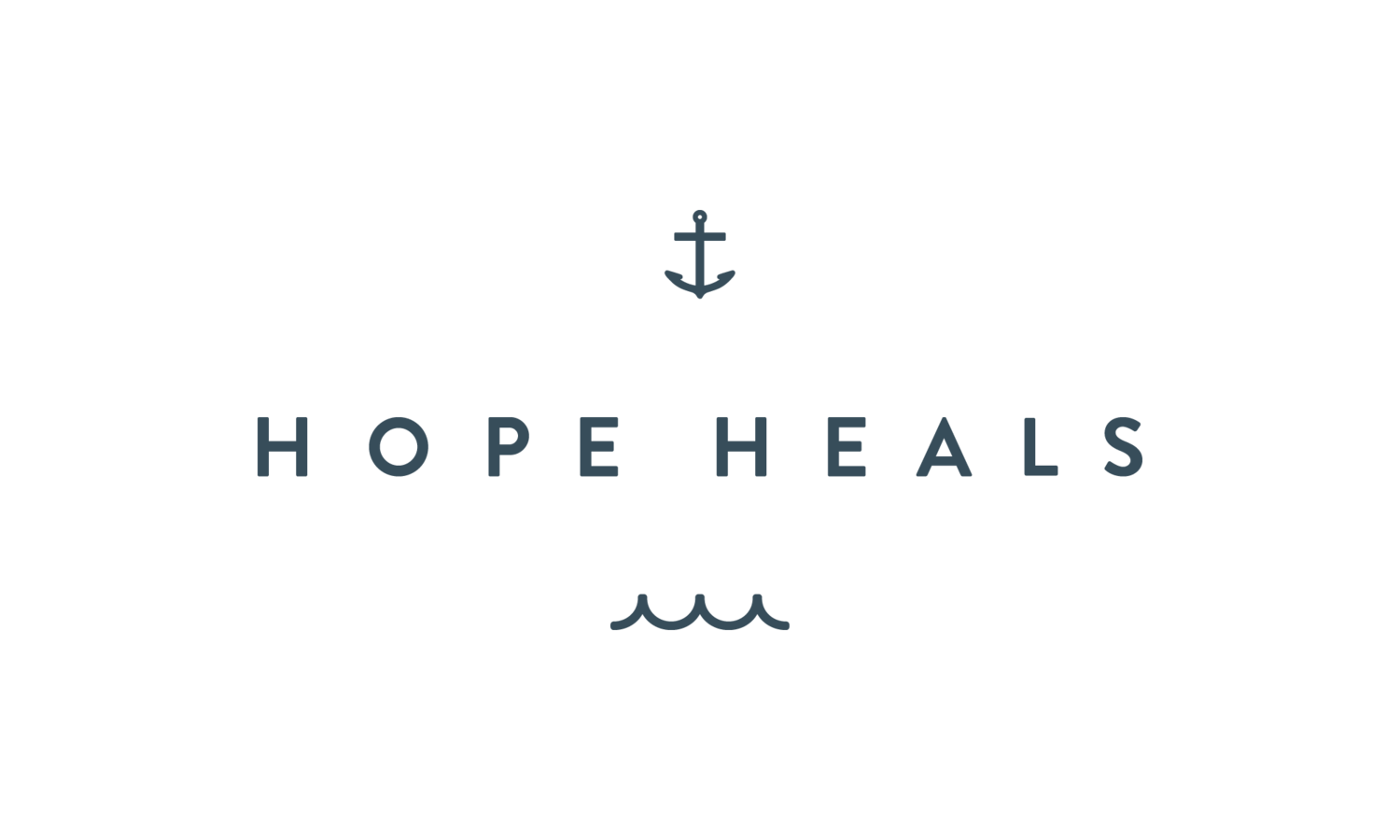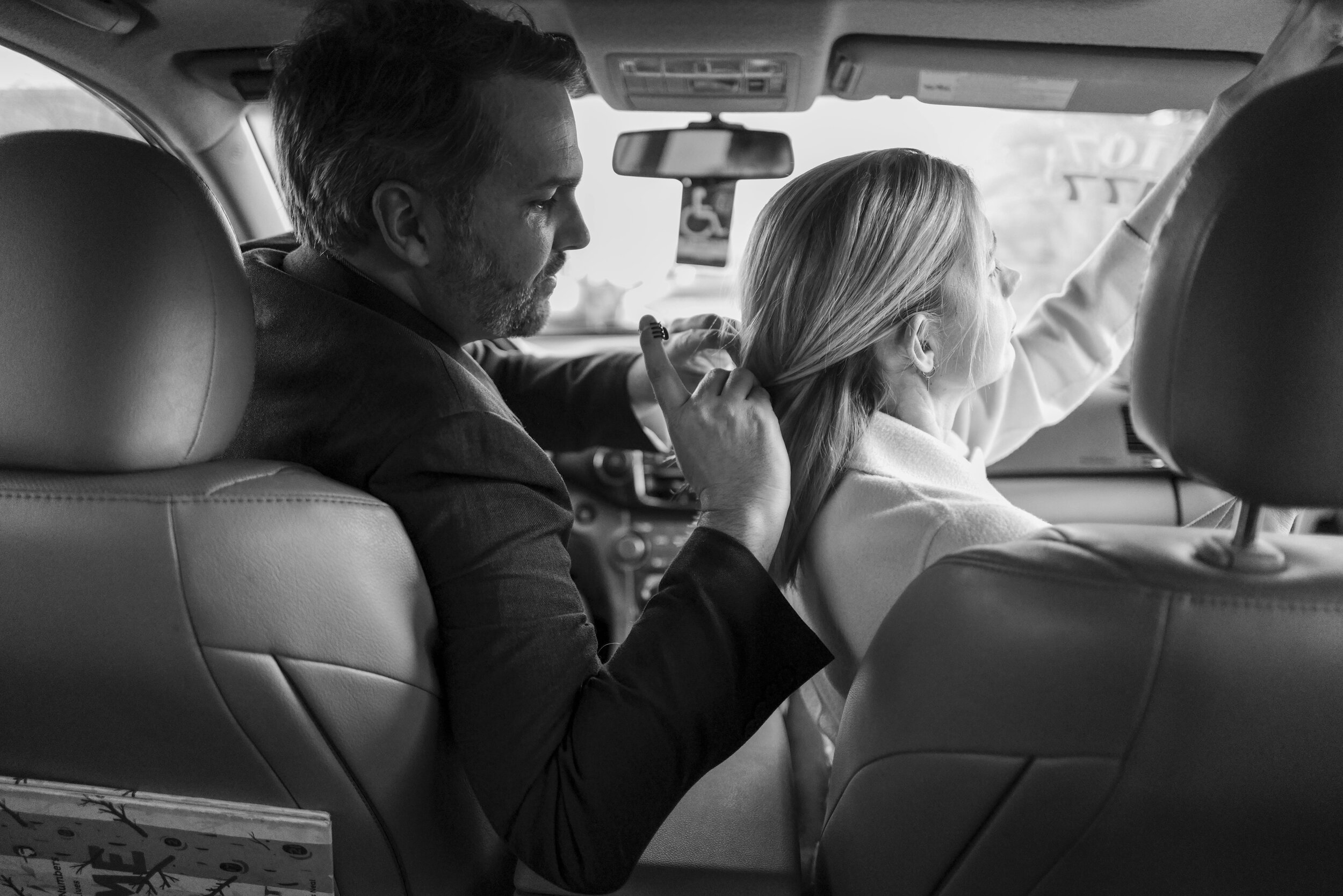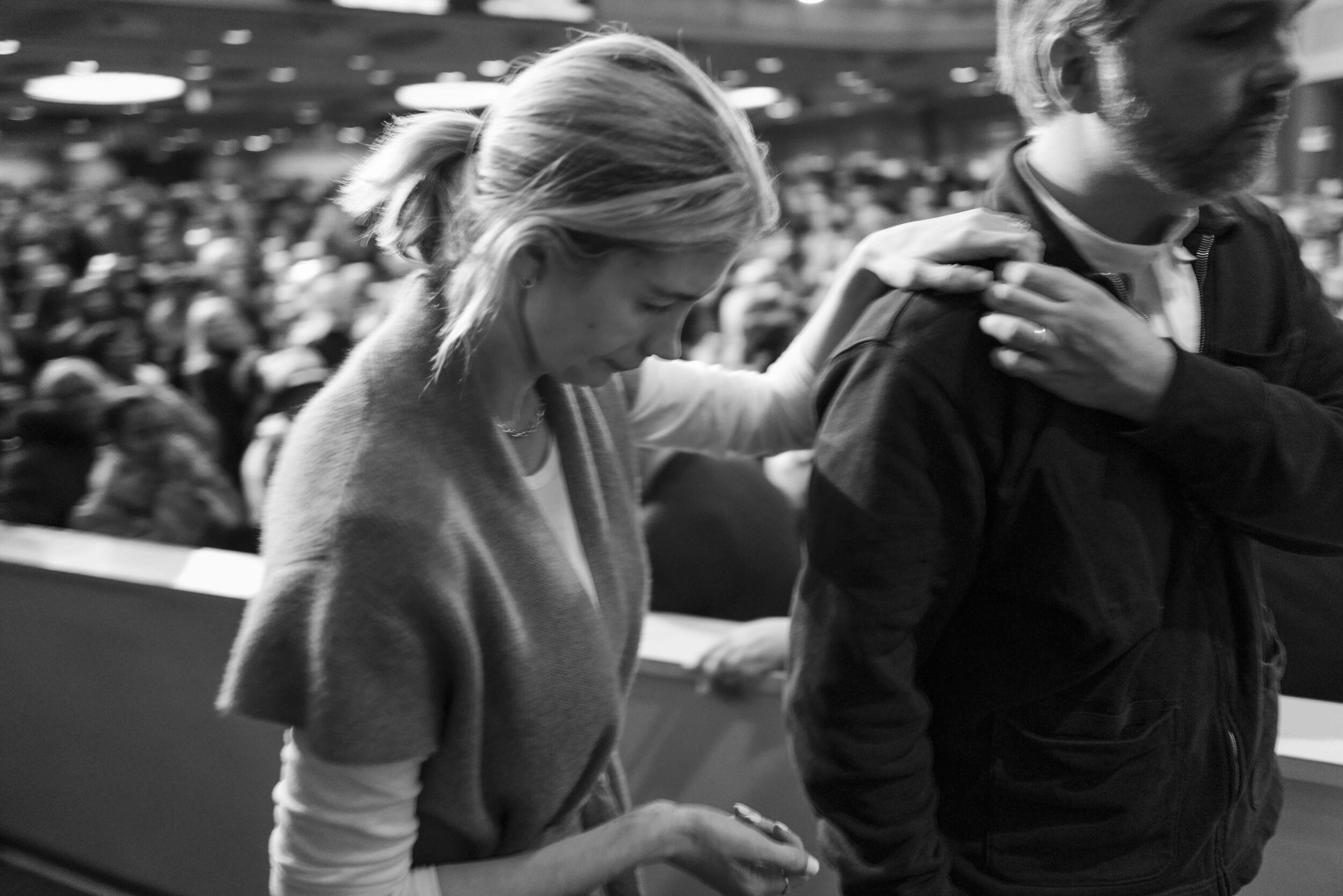The First in a Litany of Insecurities
Photo by Bryan Johnson
It’s the summer I turn 11, and I’m out with church kids for a bike ride. The helmet I’m wearing is unsightly—a shell to protect me from harm. As you might imagine, both my attendance and armor-wearing are to please my parents.
We ride for awhile, till we’re sweat-lathered and shiny, when a kid’s mom shouts up ahead, Come, smell this honeysuckle! She’d parked her bike beside the trail, her head now submerged in greenery. I follow the group and stroke the leaves of a shrub, pretending to smell what they claim to be so sweet, so worth stopping for. No one wants to out themselves, at least not in junior high.
Weeks later, I’ve endured blistering and calamine applications and a “no itch” policy from my mama. I expose my skin to the air blown from vents, fans, my own breath. I begin to discover that moment of confusion on the trail would always be with—or should I say on—me. How was I to know honeysuckle and poison ivy grow in vicious clusters?
As my skin begins to heal, mild keloidal scars surface. Daily I examine my back in the mirror, observing small islands forming on one scapula and beneath my arm. Ugly enters my vocabulary. For the first time, I dislike my body.
Photo by Bryan Johnson
The school year resumes, and my ballet studio bustles with dancers again. This second home feels less enchanting as I stand at the barre, right arm arched overhead in fifth position, scars out for all to see. Students don’t speak in class, but I script what they’d say as they stand behind me, waiting to grand jéte across the floor. I have my mom order sleeved leotards, the beginnings of my strategic cover-ups.
My disdain over scarring is a sampling of the body hatred to come. I train, audition, and perform in a world where your appearance and movement are subjected to critique. The mirrors and teachers demand more, better, different.
I don’t think to question who creates these impractical standards. I’m aware only of what’s revealed to me. Your body must look effortless, graceful, perfect. And I knew mine was not.
For 15 years and well past my dancing days, I take note of possible imperfections before anyone can see, question, or mock. I hide the alopecia, the bottom teeth, the stretch marks—the litany of physical insecurities growing with age. If they can’t be masked, I criticize myself first, each strategy a piece to my invisible armor. The goal is to prevent harm from people, yet the self-contempt within becomes its own poison.
Through a succession of events which lead to my unraveling, I reexamine what has formed me—each experience, each stroke of pain and rejection, each shameful moment.
Photo by Bryan Johnson
Healing begins when my therapist sends me off with her copy of C.S. Lewis’ The Great Divorce. I am the Ghost from my favorite scene, a weary thing afflicted by a lizard “twitching its tail like a whip and whispering things in his ear.” I have known these whispers, the sabotage trailing from studios to staff meetings to Sunday gatherings. The Ghost is offered rescue, a promise of freedom from what has bound him. He only must say yes. The answer seems evident—why delay or rethink it? But I have been here. I am here, telling God what the Ghost replies to his Angel, “I’m sure I shall be able to keep it in order now. I think the gradual process would be far better than killing it.”
Maybe like me, the Ghost couldn’t imagine life apart from managing, scrutinizing, reprimanding, and hiding. This has been our way of life, and anything otherwise is questionable. But I’m tired, and my shell has failed to protect me. Desperation drives us to receive help: “‘Go on, can’t you? Get it over. Do what you like,’ bellowed the Ghost: but ended, whimpering, ‘God help me. God help me.’”
It is spring 2019, and I finally admit to self-hatred, finally uncover the insidious nature of it all. The prayers are faint, but the Lord hears. He waters my sprouts of faith.
I believe I have grown. Hatred is an unwatered plant now, shriveling as each season turns. Its demands might be the same, but with the Spirit’s supply and strength, I divert my attention. I tend to my spiritual formation with greater care and conviction, abiding in the truth not merely because I should, but because it is for my good.
I start to believe I—the whole of me—am found lovely by the God of all grace.
Photo by Bryan Johnson
The young girls I nanny know of my scars. I’m asked for the origin story again last week, after we stopped and smelled honeysuckle (which by the way, really does smell sweet). They see the marks as we dance in tank tops around the kitchen island, arms raised and smiles higher. I share why these “bumps” are not something to be embarrassed about, how I think the scars add to me, and what I have learned in the years since that one bike ride.
And those don’t hurt right, Miss Erika?
I smile. No, not anymore.




